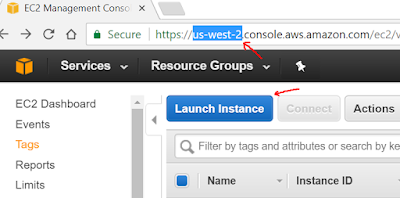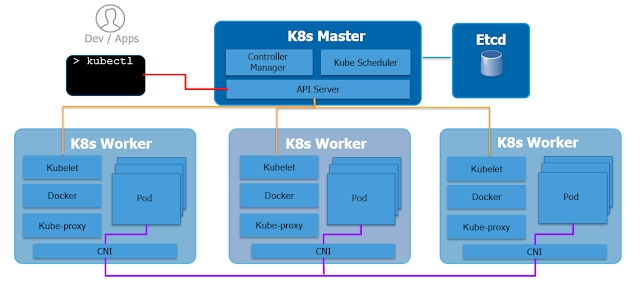South East Asia Pied Piper 2018
If 2017 was full on, 2018 has started with an even higher tone. Last week (22-26 January 2018) we carried in Singapore the class-based Pied Piper workshop. Prior to that 21 enthusiastic DellEMC Systems Engineers had gone through some technical prerequisites in the form of Python, basic Linux CLI commands and some basic HTML. The progress of the prerequisites as well as the logistics and other aspects of the organization were conveniently tracked with a Trello board formatted as a Scrum board.
The program participants came from from all over the region: Singapore, Malaysia, Thailand, Philippines, Vietnam, South Korea, Pakistan and China. 21 people is a big class, especially for content that focuses so heavily on hands-on. Hence I requested Theo, one of the key members from the ANZ team, to join me for the delivery. This, not only contributed to a much better outcome for the students but also gave him an opportunity to get exposure to the teaching side as the goal of the program is to turn it into a self-sustained snowball.
Something that we did differently from the ANZ edition was to consolidate all the workshops in 5 consecutive days. The primary intention was to minimize international travel both for instructors and attendees. We were concerned that it would be too long for everyone but the truth is that the post-event survey didn't show any complaints about that. On the other hand, a massive advantage of doing it this way is that we had 0% drop out. In contrast, in ANZ we stretched the sessions over a 3 month period and we had a 40% drop out.
For the following few weeks attendees will be working on a personal project of their own that will help them internalize all the concepts while they are fresh in their minds. It remains to see what the outcome will be but it is likely to surpass the ANZ results in quantity of people completing it. This is a massive lesson learned which will likely determine how we deliver it in the future.
From a logistics point of view we did 2 days at an alternate location at "Changi Cove" where we could take a more casual stance, away from day-to-day commitments and at the same time enjoy more relaxed firewall rules. Some of the labs require access to ports like SSH, Redis and Mongo that are typically blocked by corporate firewalls.
We spent day 3 at the Pivotal office, so that we could experience first hand their unique startup culture and see some of the Agile ideas at work. We were also given a tour of Pivotal Labs which was a big eye opener for everybody.
The last 2 days we spent them in the DellEMC office in Changi because we wanted to visit the IoT Centre of Excellence, which is impressive and a must-visit for anyone in Singapore ... you can see below I am not making it up :)
However this meant that some of the local Singaporean team members got pulled into day-to-day duties and the post-event survey reflected that. In the future we will avoid our own premises as much as we can.
Another goal of the program is to get modern business acumen typically associated with cloud native apps and agile development by exploring the world of start-ups and innovation. To this regard we looked for a suitable meetup and we attended the "Singaporeans learning to code" session where we learned from a young entrepreneur what it takes to be a tech founder.
The program participants came from from all over the region: Singapore, Malaysia, Thailand, Philippines, Vietnam, South Korea, Pakistan and China. 21 people is a big class, especially for content that focuses so heavily on hands-on. Hence I requested Theo, one of the key members from the ANZ team, to join me for the delivery. This, not only contributed to a much better outcome for the students but also gave him an opportunity to get exposure to the teaching side as the goal of the program is to turn it into a self-sustained snowball.
Something that we did differently from the ANZ edition was to consolidate all the workshops in 5 consecutive days. The primary intention was to minimize international travel both for instructors and attendees. We were concerned that it would be too long for everyone but the truth is that the post-event survey didn't show any complaints about that. On the other hand, a massive advantage of doing it this way is that we had 0% drop out. In contrast, in ANZ we stretched the sessions over a 3 month period and we had a 40% drop out.
For the following few weeks attendees will be working on a personal project of their own that will help them internalize all the concepts while they are fresh in their minds. It remains to see what the outcome will be but it is likely to surpass the ANZ results in quantity of people completing it. This is a massive lesson learned which will likely determine how we deliver it in the future.
From a logistics point of view we did 2 days at an alternate location at "Changi Cove" where we could take a more casual stance, away from day-to-day commitments and at the same time enjoy more relaxed firewall rules. Some of the labs require access to ports like SSH, Redis and Mongo that are typically blocked by corporate firewalls.
We spent day 3 at the Pivotal office, so that we could experience first hand their unique startup culture and see some of the Agile ideas at work. We were also given a tour of Pivotal Labs which was a big eye opener for everybody.
The last 2 days we spent them in the DellEMC office in Changi because we wanted to visit the IoT Centre of Excellence, which is impressive and a must-visit for anyone in Singapore ... you can see below I am not making it up :)
However this meant that some of the local Singaporean team members got pulled into day-to-day duties and the post-event survey reflected that. In the future we will avoid our own premises as much as we can.
Another goal of the program is to get modern business acumen typically associated with cloud native apps and agile development by exploring the world of start-ups and innovation. To this regard we looked for a suitable meetup and we attended the "Singaporeans learning to code" session where we learned from a young entrepreneur what it takes to be a tech founder.










Comments
Post a Comment